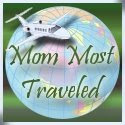 Number 7 plastics are categorized as "miscellaneous". They could be a mix of two or more of any of the other plastics categories. Some #7 plastics are made with polyactide, which is derived from plants and is very green, compostable, and safe.
Number 7 plastics are categorized as "miscellaneous". They could be a mix of two or more of any of the other plastics categories. Some #7 plastics are made with polyactide, which is derived from plants and is very green, compostable, and safe.
Polycarbonate, which contains bisphenol A, or BPA, can also be in this category. Polycarbonate has been shown to leach "hormone disrupters", which has caused parents to question why polycarbonate is used to make cups and bottles, and food containers for children. Bisphenol A is also used to coat the inside of metal food cans, and can be present in the metal lids of glass baby food jars.
BPA has been shown to have the same effects as estrogen in the human body. Many people are exposed to BPA every day. A study by the Center for Disease Control detected BPA in the urine of 95% of the adults sampled.
Various studies have found that BPA can:
- stimulate growth of prostate cancer cells
- cause breast tissue changes similar to early stage breast cancer
- cause ovarian dysfunction
- cause miscarriage
- cause genetic damage when exposed early in life
- cause early onset puberty
- cause changes in hormones, like decreased testosterone
- decrease sperm production
- increase prostate size
- alter immune function
- cause behavioral effects like hyperactivity, aggressiveness, and learning impairment.
According to this study by Environmental Working Group, BPA is present the containers and cans of these infant formulas,
 I took the step and cleaned out my kids' bottle/sippy cup collection. Besides checking the bottoms of the cups for the plastics number (I found 2 that were marked #3! PVC!) I used many internet articles and blogs for information:
I took the step and cleaned out my kids' bottle/sippy cup collection. Besides checking the bottoms of the cups for the plastics number (I found 2 that were marked #3! PVC!) I used many internet articles and blogs for information:Safe Mama has a BPA free Bottle and Sippy Cup Cheat Sheet that is worth a look. There is also a BPA Free Pacifier and Teether Cheat Sheet.
Z Recommends has compiled a great resource, checking the safety of many MANY different sippy cups and baby bottles. Z Recommends created this printable BPA wallet card for quick reference. Here is the Z Recommends BPA in Pacifiers article. I'm throwing out the AVENT paci! If you are new to the BPA issue, check out Z Recommends: Catching Up on BPA to get yourself up to speed. Z Recommends: National Toxicology Program Concurs "Some Concern" with BPA Exposure.
The Soft Landing has compiled a comprehensive list about Nuby products. Many Nuby products are BPA free. There are many companies who offer BPA free baby bottles and training cups/sippy cups, but Nuby are inexpensive and widely available to big box stores if you need a quick fix. The Soft Landing has other great information on a variety of children's products:
An informative printable (pdf) guide to plastics can be found here:
Smart Plastics Guide for parents and children


No comments:
Post a Comment